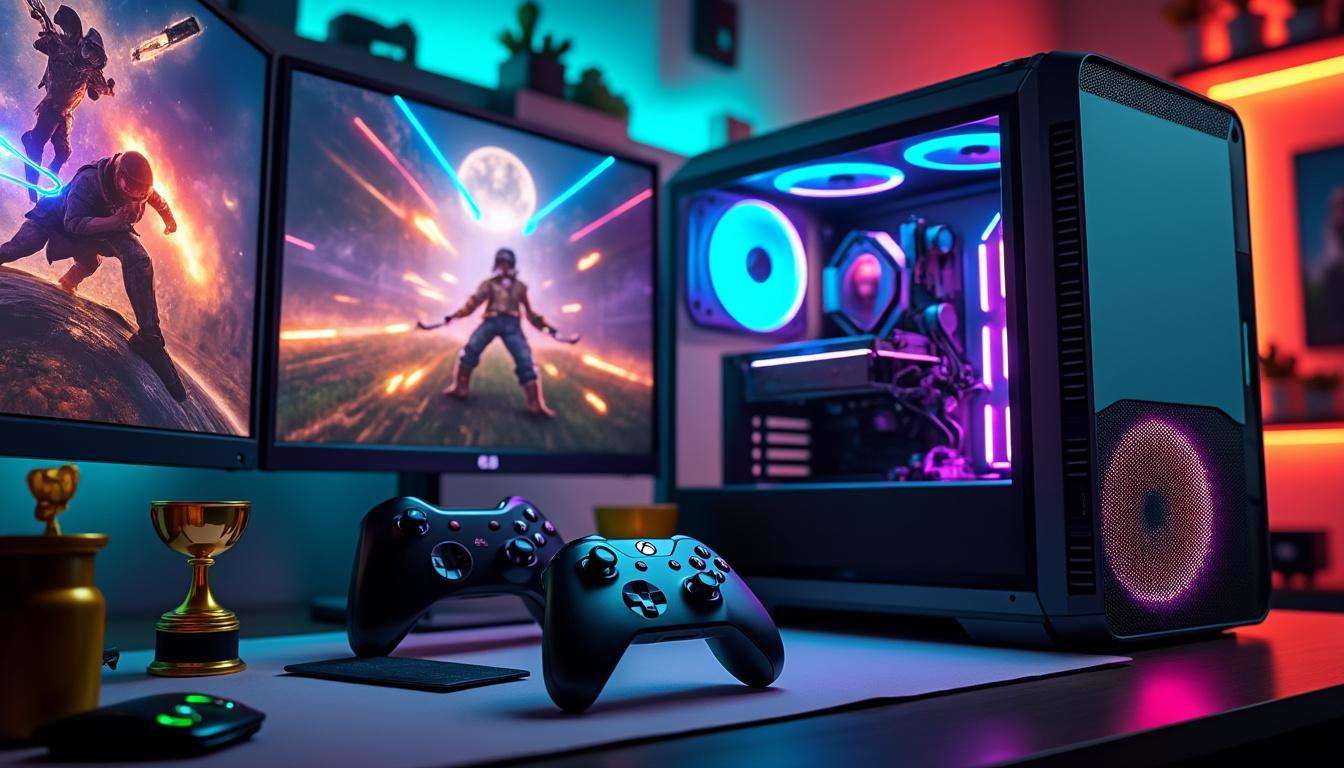Microsoft continues to reshape its gaming identity on the PC platform, moving from the controversial “Xbox PC” branding to the more descriptive “Xbox on PC.” This shift highlights the company’s ongoing struggle to clearly define its presence in the Windows gaming ecosystem, an area long dominated by upgrades in hardware like Surface devices and software frameworks such as DirectX and Azure cloud services. The rebrand aims to clarify the relationship between Windows, Xbox Live, and Game Pass offerings for PC gamers, who often face confusion over what Microsoft’s gaming vision truly entails on non-console devices.
Despite Windows being the premier gaming operating system, Microsoft’s attempts to unify the Xbox and PC gaming experience have met with mixed reactions. Services like Xbox Cloud Gaming and Game Pass have made significant waves, but the branding overhaul underscores an essential truth: even tech giants can face identity crises when balancing multi-platform strategies. Xbox on PC is a clearer, friendlier term that better communicates the integration of Microsoft’s ecosystem, strengthening the synergy between its Xbox content and PC hardware capabilities.
Microsoft’s Branding Challenges in Windows Gaming Market
The decision to rebrand Xbox PC to “Xbox on PC” is more than just cosmetic. It reveals the complexity Microsoft encounters in positioning its gaming products within the crowded Windows ecosystem. For years, Windows held the crown as the top PC gaming platform, backed by technologies like DirectX that power immersive experiences. However, the Xbox brand’s identity on PC has been inconsistent, with players questioning whether Xbox exclusives, Xbox Live, and Game Pass truly belong squarely within the Windows gaming umbrella.
Key reasons behind the confusion include:
- Overlapping platforms: Xbox consoles, Game Pass, and Windows PCs all position Microsoft in gaming, yet lack a coherent unifying label that resonates with gamers.
- Marketing inconsistency: Switching from “Xbox PC” to “Xbox on PC” signals uncertainty over messaging clarity.
- Technological integration: Microsoft’s Azure cloud gaming infrastructure and DirectX updates demonstrate technical commitment but require clear communication to the consumer.
- Hardware synergy: With Surface devices increasingly promoted for gaming, Microsoft needs clearer branding to highlight the PC gaming experience powered by Xbox innovations.
Despite these hurdles, this rebranding might better position Microsoft to compete with established gaming ecosystems like Steam and emerging challengers such as SteamOS, especially when combined with a compelling lineup of titles available via Xbox Game Pass on PC.
How ‘Xbox on PC’ Enhances Gamer Understanding
Transitioning to “Xbox on PC” explicitly expresses that Xbox content and services are accessible directly on personal computers. This subtle linguistic tweak helps clarify the experience for users who enjoy games via Xbox cloud streaming or native PC installations. It also links Xbox Live’s social features more concretely to Windows PC gaming, reinforcing the ecosystem’s connectivity and ease of use.
Consider these benefits:
- Clearer proposition: “Xbox on PC” signals a service layer, not just a hardware platform, distinguishing software and cloud services from the console.
- Improved marketing focus: Microsoft can tailor messaging to emphasize Game Pass’s extensive PC catalog without diluting the Xbox brand.
- Better consumer alignment: Potential buyers and gamers understand exactly what Xbox means on their Windows PC, enhancing confidence to subscribe or purchase.
Players looking to leverage features such as syncing Xbox Live achievements or streaming games from their Windows machines benefit from this clarity. The branding fits well alongside Microsoft’s efforts to enhance low-latency streaming through Xbox Cloud Gaming and promote PC game libraries powered by DirectX innovations.
Strategic Implications for Microsoft’s Windows Gaming Ecosystem
The rebrand has broader implications beyond mere terminology. As Microsoft increasingly merges Surface hardware capabilities with Xbox’s ecosystem and Azure cloud services, the “Xbox on PC” identity could help strengthen cross-platform play and improve how gamers interact with content. This move also aligns with rumors of upcoming Xbox gaming PCs and greater integration of Xbox Game Pass titles on Windows.
Consider how this shift impacts:
- Game Pass subscription: Expanding Game Pass reach makes the subscription more attractive across PC and console, pushing for unified access.
- Xbox Live infrastructure: Unifying player profiles and multiplayer services on PC under the Xbox umbrella encourages community growth.
- Emerging hardware collaborations: Microsoft’s partnership with manufacturers like Asus for Xbox-branded handhelds demonstrates potential future synergies with PC gaming.
Additionally, the rebranding helps mitigate the legacy confusion from earlier initiatives like Games for Windows Live. Microsoft’s commitment to fostering a robust PC gaming environment notes significant improvements in Windows 11 gaming performance and DirectX 12 Ultimate support, signaling its desire to compete aggressively with Valve’s Steam and other competitors in the PC gaming arena.
How Gamers Benefit From Microsoft’s Unified Xbox on PC Vision
For the gaming community, clearer branding has tangible outcomes. Xbox on PC promises:
- Seamless access: Easier navigation between Xbox Cloud Gaming and locally installed games on Windows PCs.
- Enhanced social features: Xbox Live integration means friends lists, achievements, and party chats become more consistent cross-platform.
- Access to premium titles: Gamers get easier entry to new releases through Xbox Game Pass and exclusive games optimized for DirectX and Windows gaming environments.
- Better streaming and remote play quality: Leveraging Azure cloud infrastructure results in improved Xbox streaming performance on PC.
These changes complement the growing arsenal of PC gaming hardware enhancements, including expanding storage options like Seagate’s 2TB Xbox expansion drives. Microsoft’s evolving Windows gaming portfolio attracts not just console players but true PC enthusiasts eager for high-quality experiences.
